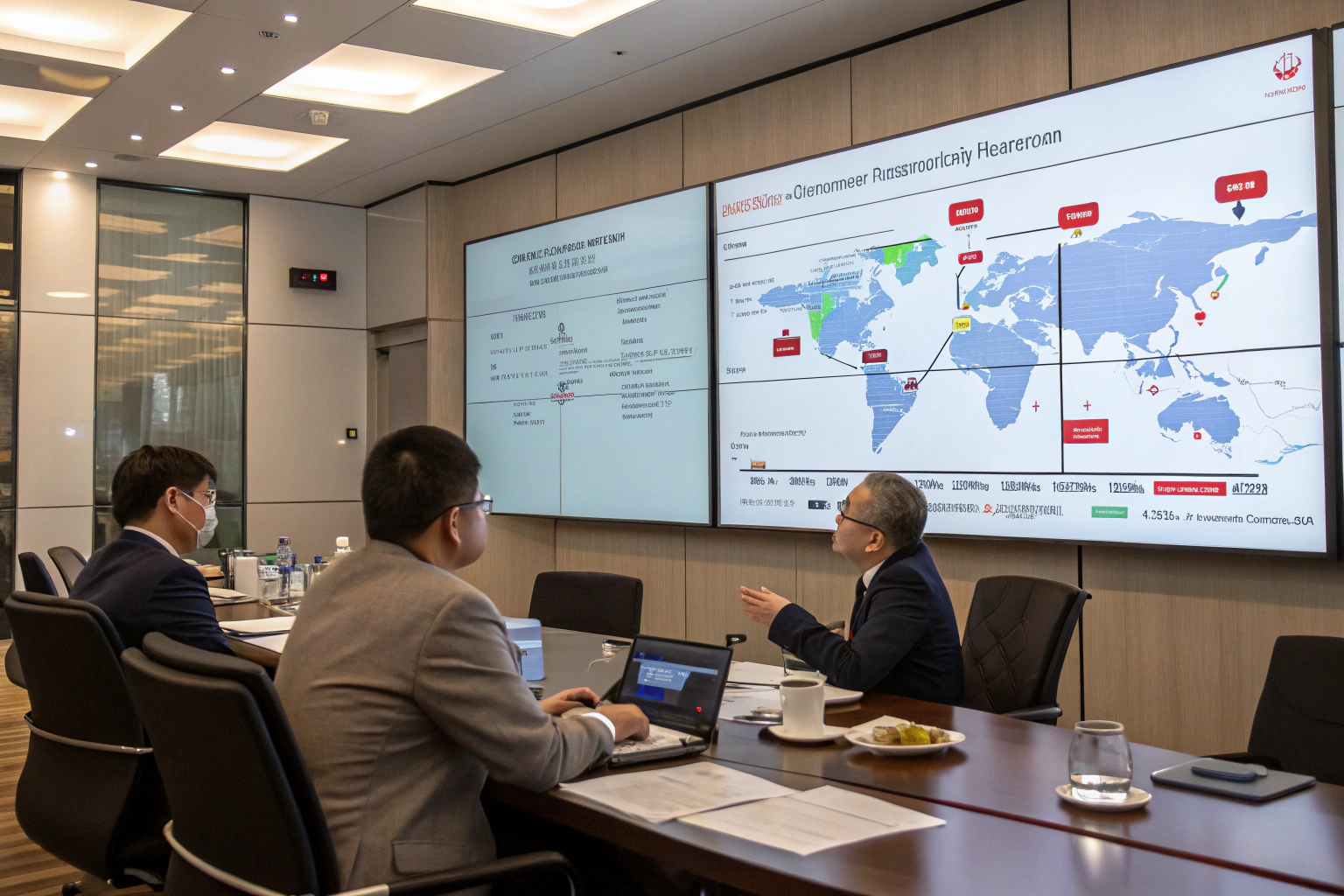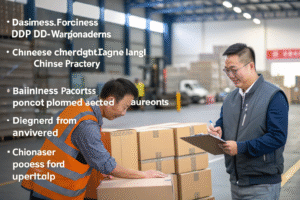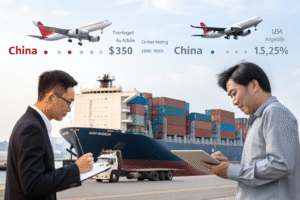Selecting the right Incoterms has always been critical for international trade, but the evolving 2025 trade landscape makes this decision more strategic than ever. With changing tariff structures, supply chain disruptions, and increased compliance requirements, your Incoterms choice directly impacts costs, risks, and operational efficiency.
For most importers in 2025, FCA (Free Carrier) from China combined with DAP (Delivered at Place) to the US provides the optimal balance of control and cost efficiency. However, DDP (Delivered Duty Paid) offers significant advantages for businesses prioritizing simplicity and predictability despite potentially higher costs.
Let's examine how each Incoterm performs in the current trade environment and which scenarios favor specific terms for your China imports.
How do FCA terms benefit China importers in 2025?
FCA (Free Carrier) has emerged as the preferred choice for experienced importers who want to maintain control over their China logistics while optimizing costs. This term places responsibility on the buyer once goods are delivered to a named place in China, typically the supplier's facility or a consolidation warehouse.
Under FCA, you control the China-side logistics, preventing suppliers from marking up transportation costs. You choose your freight forwarder, negotiate rates directly, and maintain visibility from the very beginning of the shipment journey. This approach becomes particularly valuable in 2025 as logistics costs become more volatile and supply chain transparency becomes increasingly important. FCA typically reduces China-origin costs by 15-25% compared to FOB terms where suppliers arrange pre-carriage.
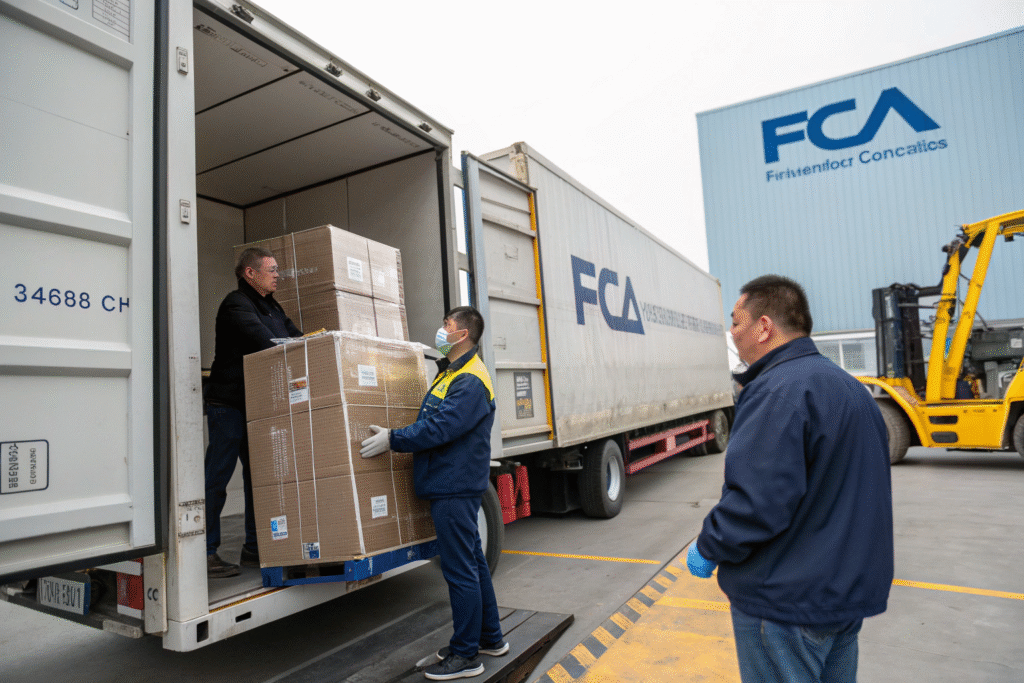
What specific advantages does FCA offer in current market conditions?
FCA provides significant benefits in today's environment:
- Cost transparency by eliminating supplier logistics markups
- Carrier selection control ensuring service quality and competitive pricing
- Supply chain visibility from the earliest possible point
- Flexibility in routing based on current market conditions
- Compliance management from origin rather than reacting at destination
These advantages become increasingly valuable as supply chain complexity grows.
How does FCA address 2025's specific challenges?
FCA strategically positions importers for current trends:
- Tariff uncertainty by maintaining control over customs strategy
- Sustainability requirements through carrier selection based on environmental performance
- Digital transformation by integrating with your technology platforms from origin
- Risk management through direct oversight of the entire logistics process
- Cost volatility by negotiating rates directly with service providers
This alignment with 2025 business priorities makes FCA particularly relevant.
When does DDP make sense despite higher costs?
DDP (Delivered Duty Paid) represents the most comprehensive Incoterm, with the seller bearing all costs and risks until goods are delivered to your designated location. While typically more expensive than managing logistics yourself, DDP offers compelling advantages for specific business models and situations.
For e-commerce businesses, small to medium enterprises without dedicated logistics staff, companies new to importing, or businesses shipping high-compliance products, DDP's simplicity often justifies the cost premium. The all-inclusive pricing prevents surprise charges, reduces administrative burden, and transfers compliance risk to experienced professionals. In 2025's volatile trade environment, the predictability of DDP becomes increasingly valuable despite the potentially higher visible cost.

What 2025 business models benefit most from DDP?
DDP delivers exceptional value for:
- E-commerce operators needing predictable landed costs for pricing
- Small businesses lacking dedicated logistics expertise
- First-time importers navigating complex compliance requirements
- Companies with limited administrative resources
- Businesses shipping regulated products requiring expert compliance management
For these organizations, the professional management outweighs cost considerations.
How does DDP mitigate 2025-specific risks?
DDP provides protection against emerging challenges:
- Customs compliance complexity through expert management
- Regulatory changes with providers staying current on requirements
- Cost surprises through all-inclusive pricing
- Supply chain disruptions with single-point responsibility
- Documentation errors through professional processing
These risk mitigation benefits justify DDP's premium for risk-averse importers.
How does EXW compare in the 2025 landscape?
EXW (Ex Works) represents the minimum seller obligation, where the buyer bears all costs and risks from the moment goods are available at the supplier's facility. While offering the lowest initial product cost, EXW requires significant buyer capability and often results in higher total costs than FCA when managed improperly.
EXW can be advantageous for large, experienced importers with established China logistics operations who can leverage their scale for optimal pricing. However, for most businesses, EXW's apparent cost advantage disappears when factoring in the challenges of coordinating China-side logistics, communication barriers with local truckers, and potential hidden costs from inefficient operations. In 2025, EXW becomes increasingly niche as supply chain complexity grows.
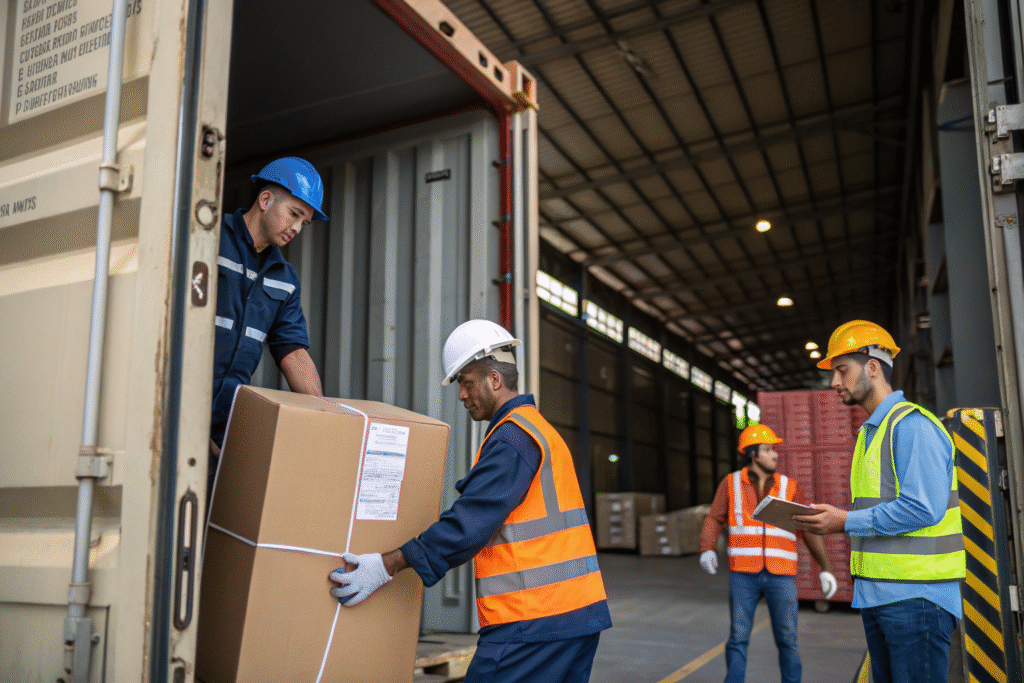
What capabilities make EXW viable in 2025?
Successful EXW implementation requires:
- Established China logistics operations with local teams or partners
- Significant shipping volumes justifying dedicated management
- Advanced supply chain technology for coordination and visibility
- Chinese language capability or reliable translation resources
- Risk management systems for comprehensive coverage
Without these capabilities, EXW often creates more problems than it solves.
Why has EXW become less attractive for most importers?
Several factors diminish EXW's appeal:
- Increasing China logistics complexity requiring local expertise
- Communication challenges with multiple local providers
- Hidden costs from inefficient coordination and suboptimal routing
- Compliance requirements needing professional management
- Supply chain volatility demanding expert response capability
These challenges make EXW suitable for fewer businesses each year.
What hybrid approaches work best for 2025?
Sophisticated importers increasingly use hybrid Incoterms strategies rather than applying one approach universally. Different products, suppliers, and business situations may warrant different terms within the same organization.
Many successful businesses use FCA for standard shipments from reliable suppliers, DDP for new product categories or complex compliance situations, and carefully managed EXW for high-volume commodities from long-term partners. This portfolio approach balances cost control, risk management, and operational simplicity based on specific needs rather than seeking a one-size-fits-all solution.
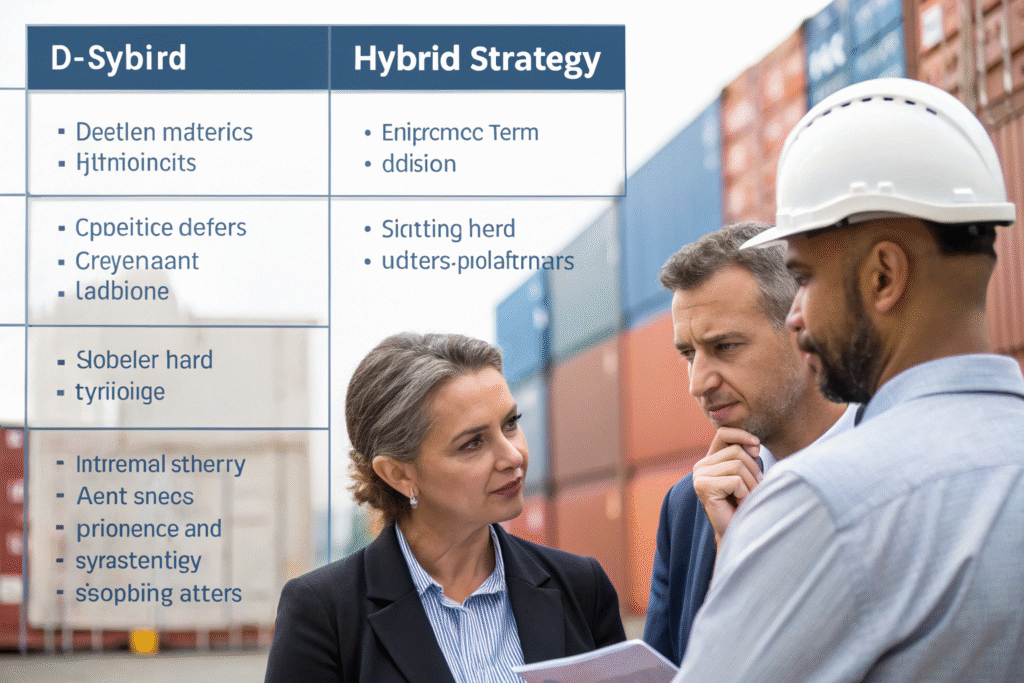
How do you determine the right Incoterms mix?
Effective hybrid strategies consider:
- Product characteristics and compliance requirements
- Supplier capabilities and relationship history
- Internal resources and expertise availability
- Shipment volume and frequency patterns
- Business priorities around cost vs. simplicity
This analytical approach optimizes Incoterms selection across your import portfolio.
What technology supports hybrid Incoterms management?
Advanced systems enable:
- Cost modeling comparing different terms for each shipment
- Performance tracking measuring outcomes under different approaches
- Compliance management across varied responsibility structures
- Supplier management with different requirements by partner
- Decision support recommending optimal terms based on multiple factors
These technological capabilities make sophisticated hybrid approaches practical.
Conclusion
The optimal Incoterms for 2025 China imports depend on your specific business capabilities, risk tolerance, and strategic priorities. FCA offers the best balance of control and cost efficiency for most established importers, while DDP provides valuable simplicity for businesses prioritizing predictability over pure cost minimization. EXW remains viable for large, sophisticated organizations with robust China operations. The most successful importers will likely implement hybrid approaches, applying different Incoterms strategically across their supplier base and product categories. As trade complexity increases in 2025, your Incoterms strategy becomes less about simple cost calculation and more about building resilient, efficient supply chains aligned with your business objectives.
